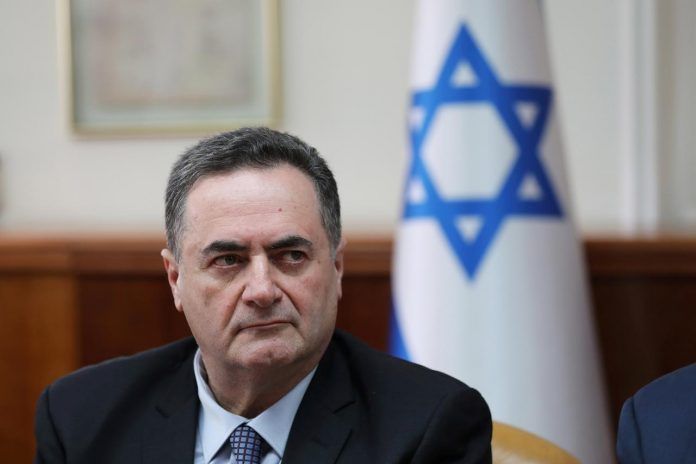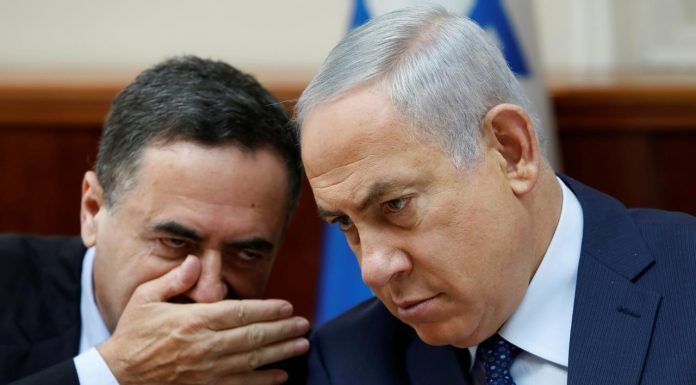
JERUSALEM, July 2 (Reuters) – Israel is preparing for its possible military involvement in any escalation in the Gulf confrontation between Iran and the United States, the Israeli foreign minister said on Tuesday.
The unravelling of the 2015 Iran nuclear deal under U.S. diplomatic pressure, Iran‘s downing of a U.S. drone and its alleged role in the holing of oil tankers in the Gulf have driven up tensions and stirred war worries.
Israel has encouraged the Trump administration to press ahead with sanctions against its arch-foe, predicting that Tehran will eventually renegotiate a more limiting nuclear deal.
But Foreign Minister Israel Katz told an international security forum that Iran might accidentally stumble out of what he termed the “gray zone” of contained confrontation.
“It should be taken into account that mistaken calculations by the (Iranian) regime…are liable to bring about a shift from the ‘gray zone’ to the ‘red zone’ – that is, a military conflagration,” he said in a speech to the Herzliya Conference.
“We must be prepared for this, and thus the State of Israel continues to devote itself to building up its military might for the event that it will have to respond to escalation scenarios.”
Israel has long threatened to take preemptive military action to deny Iran the means of making nuclear weapons. Tehran says it has no such designs. One of its senior lawmakers warned on Monday that Israel would be destroyed within “only half an hour” should the United States attack Iran.
Earlier on Tuesday, Katz predicted that what he described as the U.S.-led “economic war” on Iran would succeed despite the msigivings of other world powers.
“Iran has no chance in this war,” he told Israel’s Army Radio. “Therefore there is an opportunity there, through the tough economic pressure and the comprehensive sanctions, to prevent war, to achieve the objectives without war.”
(Writing by Dan Williams Editing by Mark Heinrich)


